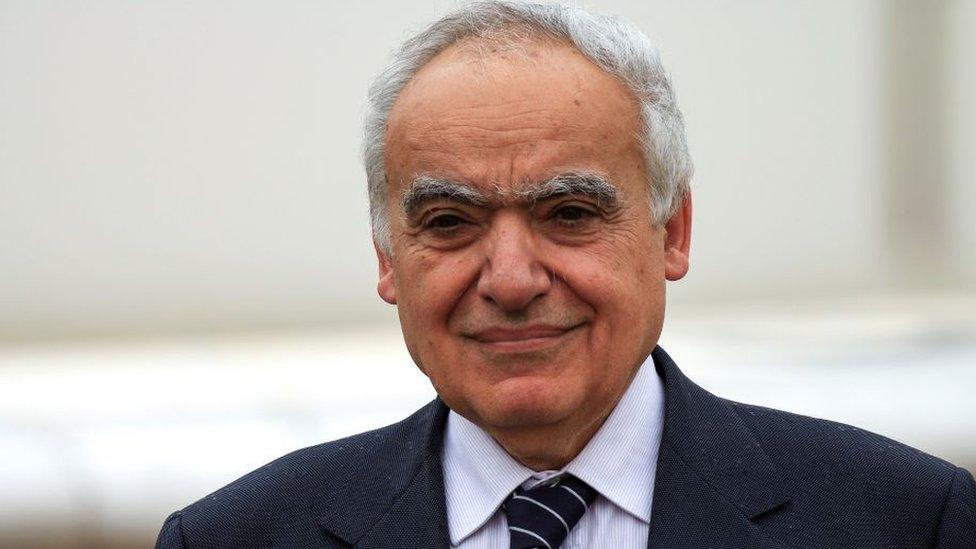Coping with coronavirus in a war zone
- Published
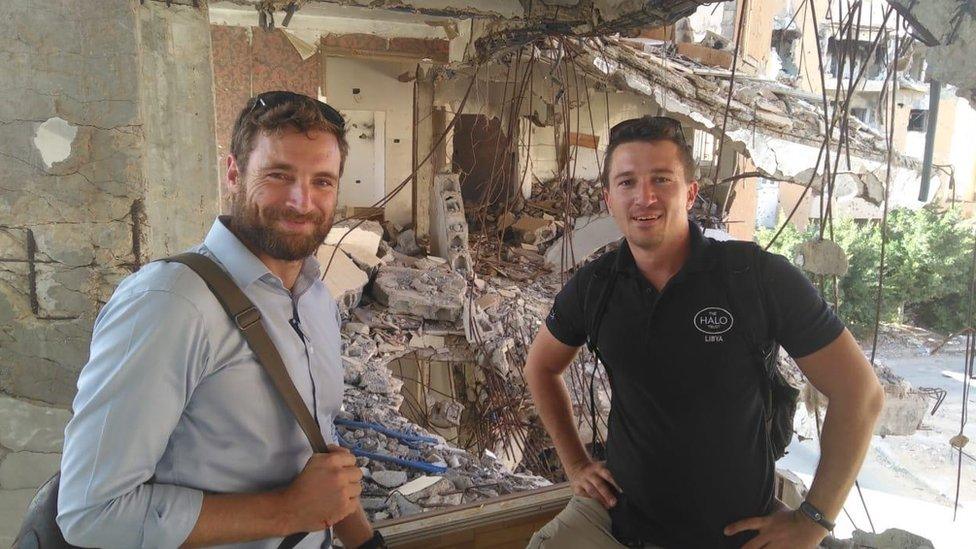
Charity worker Liam Chivers (left), a 33-year-old from Kent, is helping Libya deal with the coronavirus pandemic
Bombs, bullets, the constant threat of kidnap - and Covid-19. In Libya, a country torn apart by civil war, with a shattered health system, a man from Kent is one of the last international charity workers staying on to lead a team of 40 volunteers.
"My life here is just one long threat assessment," Liam Chivers says. "All the hospitals are full of the war wounded and already close to maximum capacity.
"Two medical facilities assigned for Covid-19 patients have come under artillery fire and have had to be evacuated…This is not an easy place to work in."
Since Libya's collapse into a state of near perpetual conflict following the 2011 revolution, daily life has become so difficult and so dangerous for charities that there are only 13 international non-governmental organisations (NGO) workers left in the entire country; the rest have been evacuated to neighbouring Tunisia.
Liam, 33, became country manager for HALO Trust, the UK mine-clearing charity, in 2018.
He and his colleague from Ukraine are now the only foreigners remaining in HALO's team, managing a local workforce of 40 Libyans.
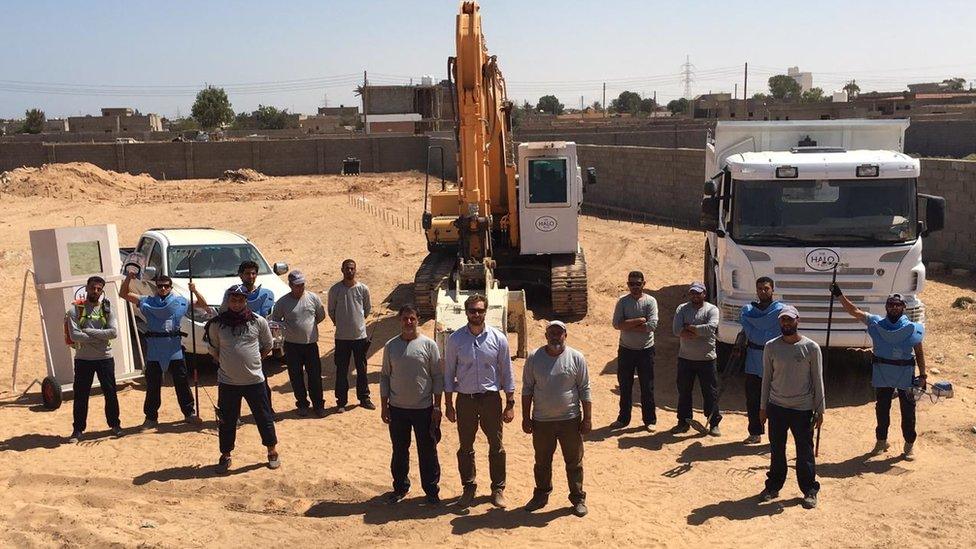
Liam works for the UK mine-clearing charity HALO Trust, where he and his colleague from Ukraine manage a local workforce of 40 Libyans
They operate out of Sirte and Misrata.
"Libyans do not like staying indoors at all," says Liam. "Some people think it [the virus] has already passed. I wouldn't be surprised if it was the first country in the world to declare itself Covid-free."
There is a curfew, he says, that differs according to which militia is in charge. The one controlling the west suddenly announced a 10-day, 24-hour lockdown but gave everyone just half a day's notice. The result: everyone rushed to the shops, with no social distancing.
Given the current threat from coronavirus, HALO has been working with Libya's National Centre for Disease Control in the city of Misrata to try to offer health solutions.
"When a man from Kent who left school at 16 is one of three people round a table at the centre for disease control in a city with 600,000 residents, plus tens of thousands of migrants and other vulnerable people that pass through Libya, you realise how poorly equipped things are here," Liam says.
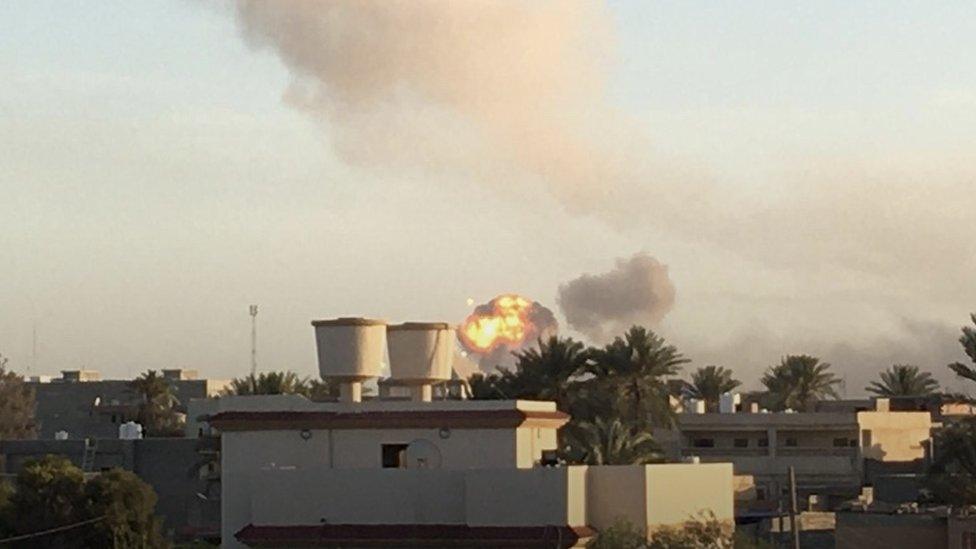
A bomb goes off at an ammunition dump in Libya, where cities are regularly being shelled in the country's civil war
Libya's civil war has recently worsened, he adds, and the renewed fighting has meant a lot of people do not have access to water or electricity, while cities are frequently getting shelled.
Since March, HALO has started augmenting its normal work - clearing away the dangerous debris of war from residential areas - with action to help Libya cope with Covid infections.
"A few nights ago an ammunition store exploded nearby so we headed out to help the city clear away the deadly debris that was scattered all over," Liam says. "The next day we planned a Covid response reaching 1.2 million people across the central region of Libya.
"I work across both sides of the front line. We are seen as independent and neutral and that allows us to get into areas others can't reach."
This is especially true for the all-women teams HALO sends out to educate other women, as it is often hard for them to leave home.
The charity is now using its fleet of vehicles for 'risk-messaging' - spreading advice to Libyans on how to avoid infection from Covid-19.
It is also adapting its data mapping technology, normally used to plot areas with unexploded bombs, to map which areas have done risk messaging and contact tracing.
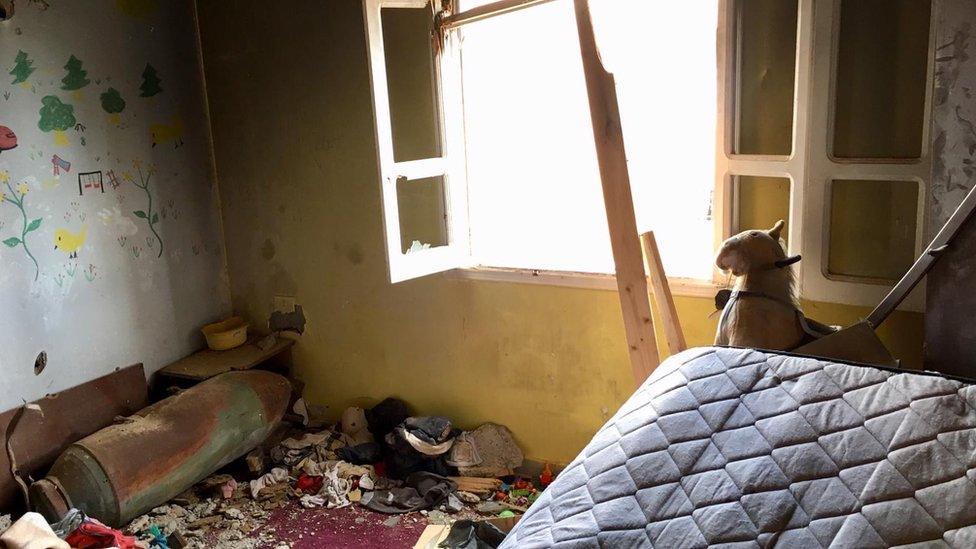
An unexploded bomb in a child's bedroom in Libya
Liam's work is both difficult and dangerous. Battle lines keep shifting and in a country with so many armed militias the rule of the gun is paramount.
"We built these machines for mechanical clearance of conflict rubble," Liam says. "But then a militia turned up in Landcruisers mounted with heavy machine guns and demanded we hand over all our vehicles. We had to frantically hide stuff."
He says the strain does get to him sometimes. "My team have become like my brothers. You're driving away from them, you're saying goodbye and you don't know whether you're going to see them again."
But Libyans, he says, are incredibly resilient. They have been through so much.
One of his employees lived under IS rule in Sirte. He was whipped for smoking and then thrown into jail just for talking to a woman.
Today, what keeps Liam doing this job is the people he works with.
"They are well-educated and well-motivated," he says. "Libyans just want to see their country recover and we want to help them."
- Published23 January 2020
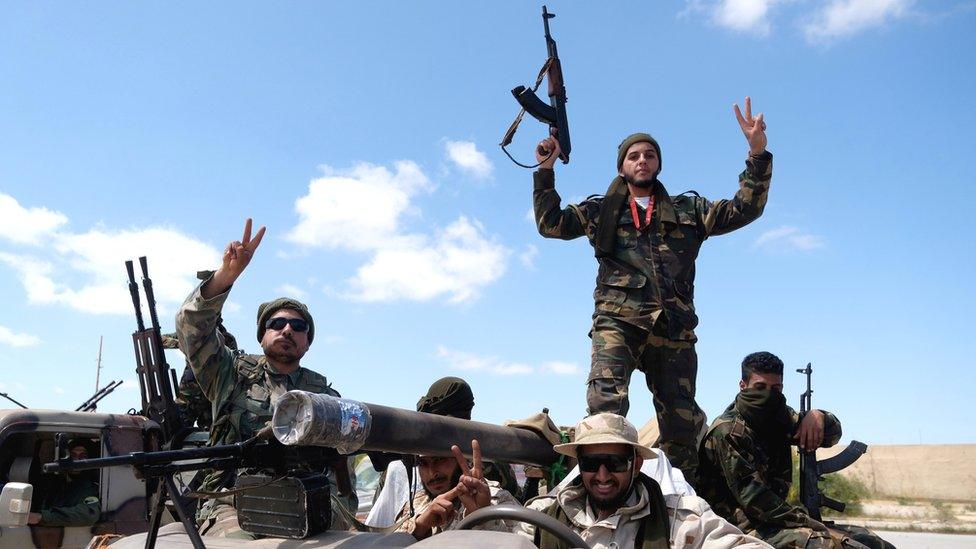
- Published27 October 2019
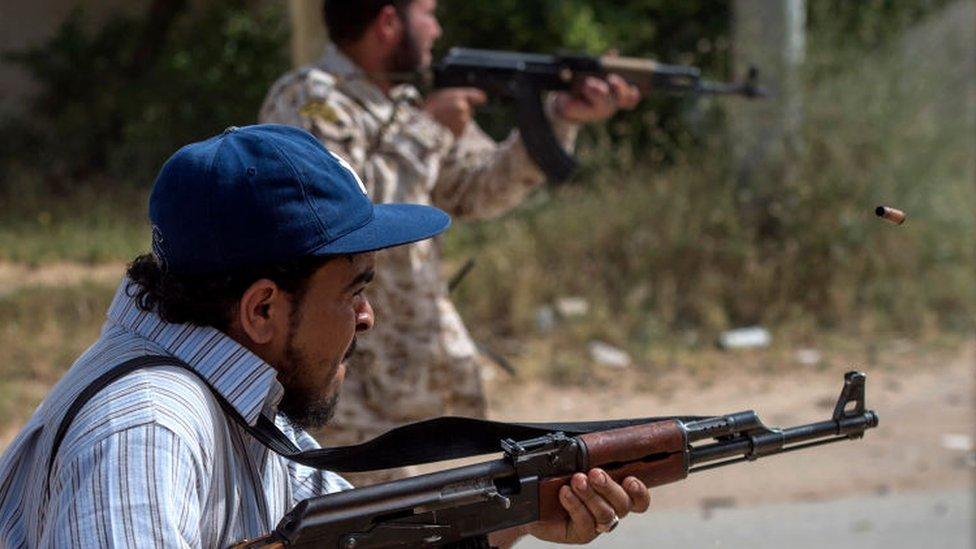
- Published2 March 2020
